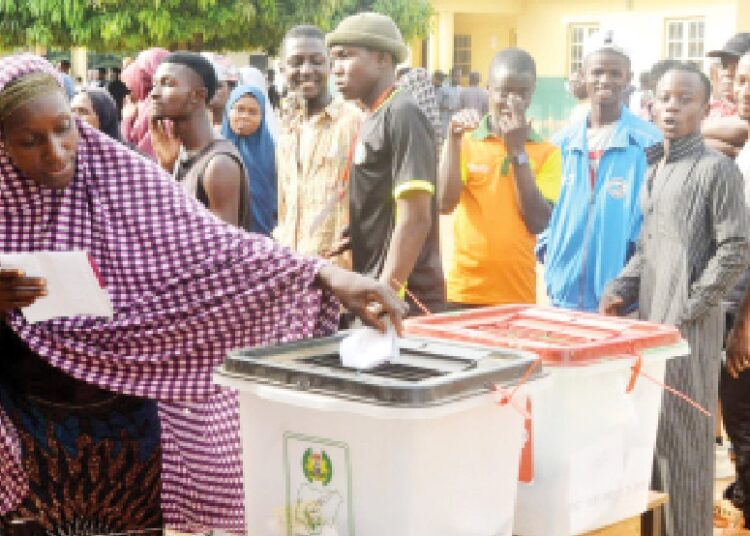Civil Society Organisations (CSOs) and Traditional Rulers have expressed worry over the credibility of the 2027 general election in the face of the worsening insecurity across the country.
They also raised concern over the high level of poverty and hardship in the country which are recipes for vote buying and selling between political actors and voters during polls.
The stakeholders made their positions known at a two-day policy dialogue on Civic Space, Poverty, and Elections in Nigeria, organised by the African Centre for Leadership, Strategy & Development (Centre LSD) and the Women’s Rights Advancement and Protection Alternative (WRAPA).
A traditional ruler, Sarkin Yakin Gagi/District Head of Gagi in Sokoto State, Sani Umar-Jabbi, noted that credible election is not possible with insecurity and urged the government to invest more in security to make the electoral environment safe for the citizens to exercise their franchise.
“We can’t have credible elections in 2027 because elections are about the opportunity for everyone to come and choose their leaders. When there is a segment of the society being sidelined because of insecurity, because of different forces when they are denied access to right to vote, I think it is not justice.
“So, for us to ensure credible and transparent elections there is need for heavy investment in the security agencies so that they can reach all the nooks and crannies to ensure that the citizens are safe and all the voting points are safe and citizens can have access to go confidently and choose leaders.
“So, there is a need for more recruitment, more procurement of arms and ammunition to our security agencies and the government needs to improve their remuneration because if you see their quarters, it is not acceptable. If you go to other countries like the advanced countries you will see the welfare of police, here in Nigeria you will weep. So we want our leaders to address the contemporary challenges of insecurity…,” he said.
For his part, the director of strategy at Centre LSD, Itia Otabor, said civic space in Nigeria had been shrinking due to increased governmental control, legal constraints, and intimidation of civil society actors, particularly women’s rights organisations.
“Poverty exacerbates this situation by limiting access to information, civic education, and participation in political discourse. The economically marginalised often lack the means or freedom to assert their civic rights.
“Additionally, poverty has become a tool used by political actors to manipulate elections, where vote buying and exploitation of vulnerable communities distort democratic outcomes,” he said.
In his remarks, the executive director, Centre LSD, Monday Osasah, said with approximately 133 million Nigerians experiencing multi-dimensional poverty, Nigeria faced significant development challenges which threatened electoral credibility.
Represented by the director of development at the Centre, Dr Margaret Fagboyo, said recent elections in the country have raised concerns about electoral integrity and restrictions on civic engagement threaten the nation’s democratic progress.
“This two-day Policy Dialogue, organized by WRAPA and Centre LSD with support from the MacArthur Foundation, builds on previous research and a High-Level Conference of Thought Leaders. Our objective is clear: to examine research findings, share stakeholder insights, and develop a robust programming framework with informed policy recommendations.
“Over the next two days, we will engage in rigorous discussions, debates, and idea-sharing. Your participation and expertise are invaluable in shaping our understanding of these complex issues and identifying potential solutions. Together, we can co-create a roadmap for addressing Nigeria’s triple challenge and promoting sustainable development, democratic governance, and human well-being,” he said.
Also speaking, Saudatu Mahdi of WRAPA, said the realities facing the nation are stark; “a shrinking civic space, pervasive poverty, the erosion of electoral credibility, and growing distrust in public institutions.
“Yet, as was clearly articulated in the communique issued at the conclusion of that conference, hope lies in our shared capacity to organize, to advocate, and to insist on reforms that secure the civic and political rights of all Nigerians, especially women, young people, and marginalised communities.”





